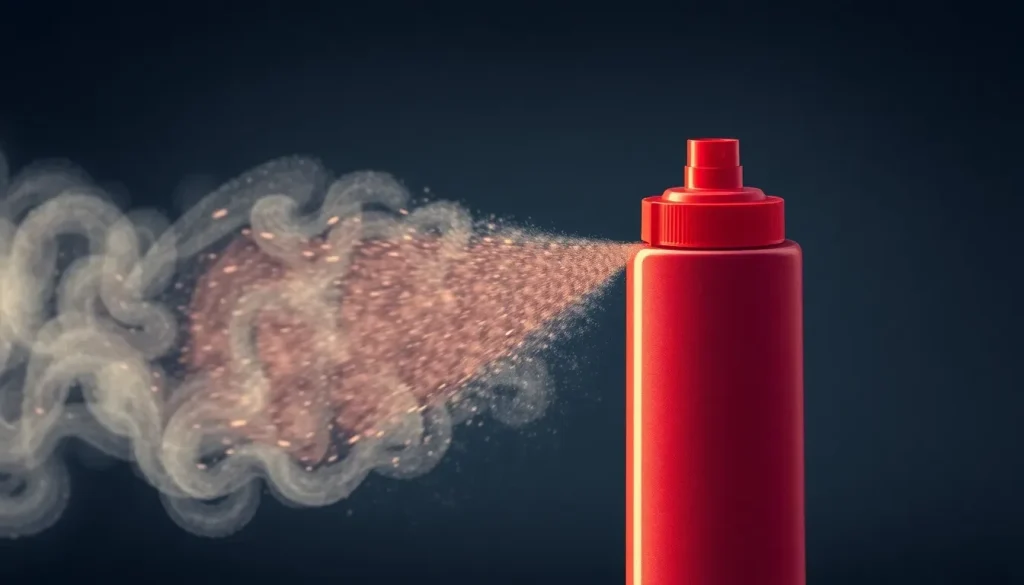Felony Charges in South Carolina High School Fart Spray Incident

In a bizarre twist of events, a seemingly harmless prank escalated into a serious legal matter. This incident raises questions not only about the nature of humor in educational environments but also about the potential consequences of seemingly innocuous actions. Let's delve deeper into the peculiar case that has caught nationwide attention.
The case of the prank gone wrong
Alexander Paul Robertson Lewis, a 32-year-old teacher’s assistant at West Florence High School in South Carolina, became the center of a peculiar controversy. He was charged with a felony for allegedly using a specialized spray designed to mimic the scent of feces. This unusual situation unfolded over several weeks, primarily affecting the students and staff at the school.
Initially, the school administration suspected a gas leak due to persistent reports of foul odors permeating the building. Parents and students expressed concerns about potential health issues, with several students requiring medical attention as a result of the overwhelming stench.
As investigations began, a series of steps were taken to identify the source of the odor:
- Inspection of gas lines by plumbers.
- Testing by local gas utility companies.
- Environmental consultants conducting air quality tests.
- Examination of various facilities within the school.
Despite thorough investigations, no gas leaks were found, leading to confusion and concern among parents and faculty alike.
Growing health concerns
Over the following weeks, complaints from students intensified. The foul smell reportedly caused severe discomfort, with some students even feeling physically ill. Reports emerged of teachers covering their noses and students experiencing dizziness and headaches. One parent expressed alarm after their child collapsed and was rushed to the emergency room.
During a heated school board meeting, a concerned mother highlighted the ongoing issues, stating, “My son has asthma. This is triggering his asthma... I had to take him to the doctor twice.” Such testimonies underscored the gravity of the situation.
The unraveling of the mystery
As the investigation continued, the possibility that a prank might have caused this disruption started to surface. On September 20, authorities arrested Lewis for using the spray repeatedly, which led to significant disruption within the school environment. The total cost incurred by the school in its efforts to uncover the source of the smell was approximately $55,000.
This incident is not isolated. In 2023, a similar prank in San Antonio resulted in arrests after a school was evacuated due to a noxious odor, leading to multiple students experiencing health issues. Such occurrences prompt a broader discussion about the implications of pranks in school settings.
Understanding the chemistry of odors
The science behind foul smells, especially those mimicked by products like "fart spray," can be surprisingly complex. Many of these sprays claim to be "non-toxic," yet their effects can vary widely, particularly among sensitive individuals.
Common ingredients in these products often include:
- Ammonium sulfide, which produces a strong rotten egg smell.
- Methyl mercaptan, commonly added to odorless natural gas.
- Proprietary blends that enhance the overall scent.
While marketed as safe, reactions can still occur, particularly in individuals with pre-existing respiratory conditions. The lack of transparency regarding ingredient lists adds to the uncertainty regarding the safety of such products.
The implications of prank culture in schools
Pranks, particularly in school environments, can easily cross the line from harmless fun to harmful behavior. This situation serves as a poignant reminder of the responsibility that comes with humor, especially in settings where the well-being of students is paramount.
Educational institutions may need to reassess their policies regarding pranks and consider implementing educational programs that address the implications of such actions. This could include:
- Workshops on the potential consequences of pranks.
- Encouragement of responsible humor among students.
- Open discussions about health and safety concerns related to pranks.
As society navigates the complexities of humor and responsibility, cases like Lewis's will likely spark ongoing debates about the balance between fun and safety in schools.
Health and safety regulations
In light of this incident, schools may also need to enhance their health and safety protocols regarding the use of potentially harmful substances. This includes a comprehensive review of:
- Product safety regulations for items used in schools.
- Emergency response plans for health-related incidents.
- Protocols for reporting and addressing health concerns in a timely manner.
Such measures can help to ensure that the safety of students and staff remains the top priority while also maintaining a fun and engaging learning environment.
As the court proceedings continue, many are left wondering how a simple prank could spiral into a situation with such serious ramifications. The case of Alexander Paul Robertson Lewis serves as a cautionary tale of the potential consequences of actions taken in jest.
For those interested in further exploration of this topic, you can view a relevant news report here.




Leave a Reply